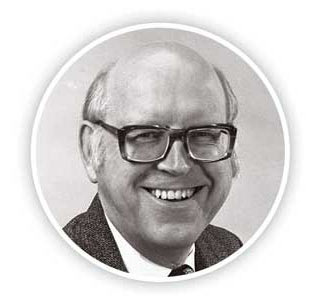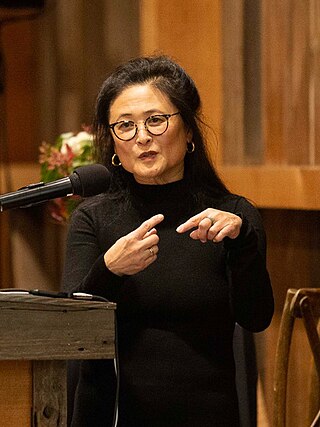Education
This section of a biography of a living person does not include any references or sources .(July 2023) |
- PhD, Columbia University, 2006
- MA, The Johns Hopkins University, 2000
- BA, The Johns Hopkins University, 1999
Thomas Shawn Mullaney (born 1978) is an American sinologist. He is a Guggenheim fellow. [1] He is professor of History at Stanford University, working on technology, race, and ethnicity in China. [2] [3] [4] [5] [6]
Mullaney received his Ph.D. in history from Columbia University in 2006 after completing a doctoral dissertation, titled "Coming to Terms with the Nation: Ethnic Classification and Scientific Statecraft in Modern China, 1928-1954," under the supervision of Madeleine Zelin. [7] [8]
His dissertation became the basis of his first book, Coming to Terms with the Nation: Ethnic Classification in Modern China, which received the 2011 American Historical Association Pacific Branch Award for “Best First Book on Any Historical Subject.” Benedict Anderson wrote a foreword for the book. [9] His 2017 book The Chinese Typewriter: A History won the John K. Fairbank Prize, the Lewis Mumford Award, and Honorable Mention by the Joseph Levenson Book Prize. [10] [11] In the same year, Mullaney joined the faculty of Stanford as assistant professor. He was promoted to associate professor with tenure in 2012, and to full professor in 2019.
This section of a biography of a living person does not include any references or sources .(July 2023) |
Kaja Silverman is an American art historian and critical theorist. She is currently the Katherine and Keith L. Sachs Professor of Art History at the University of Pennsylvania. She received B.A. and M.A. degrees in English from the University of California Santa Barbara and a Ph.D. in English from Brown University. Thereafter, she taught at Yale University, Trinity College, Simon Fraser University, Brown University, the University of Rochester and for many years was the Class of 1940 Professor in the Rhetoric Department at the University of California, Berkeley. She was awarded a Guggenheim Fellowship in 2008, and is currently the holder of an Andrew W. Mellon Foundation Distinguished Achievement Award.

Allen Newell was an American researcher in computer science and cognitive psychology at the RAND Corporation and at Carnegie Mellon University's School of Computer Science, Tepper School of Business, and Department of Psychology. He contributed to the Information Processing Language (1956) and two of the earliest AI programs, the Logic Theorist (1956) and the General Problem Solver (1957). He was awarded the ACM's A.M. Turing Award along with Herbert A. Simon in 1975 for their contributions to artificial intelligence and the psychology of human cognition.

Dabbala Rajagopal "Raj" Reddy is an Indian-American computer scientist and a winner of the Turing Award. He is one of the early pioneers of artificial intelligence and has served on the faculty of Stanford and Carnegie Mellon for over 50 years. He was the founding director of the Robotics Institute at Carnegie Mellon University. He was instrumental in helping to create Rajiv Gandhi University of Knowledge Technologies in India, to cater to the educational needs of the low-income, gifted, rural youth. He was the founding chairman of International Institute of Information Technology, Hyderabad. He is the first person of Asian origin to receive the Turing Award, in 1994, known as the Nobel Prize of Computer Science, for his work in the field of artificial intelligence.

Autocomplete, or word completion, is a feature in which an application predicts the rest of a word a user is typing. In Android and iOS smartphones, this is called predictive text. In graphical user interfaces, users can typically press the tab key to accept a suggestion or the down arrow key to accept one of several.
John W. Dower is an American author and historian. His 1999 book Embracing Defeat: Japan in the Wake of World War II won the U.S. National Book Award for Nonfiction, the Pulitzer Prize for General Nonfiction, the Bancroft Prize, the Los Angeles Times Book Prize, the Mark Lynton History Prize, and the John K. Fairbank Prize of the American Historical Association.
Stanford University Press (SUP) is the publishing house of Stanford University. It is one of the oldest academic presses in the United States and the first university press to be established on the West Coast. It is currently a member of the Association of University Presses. The press publishes 130 books per year across the humanities, social sciences, and business, and has more than 3,500 titles in print.

Kenneth Pomeranz, FBA is University Professor of History at the University of Chicago. He received his B.A. from Cornell University in 1980, where he was a Telluride Scholar, and his Ph.D. from Yale University in 1988, where he was a student of Jonathan Spence. He then taught at the University of California, Irvine, for more than 20 years. He was elected a Fellow of the American Academy of Arts & Sciences in 2006. In 2013–2014 he was the president of the American Historical Association.
Elizabeth J. Perry, FBA is an American scholar of Chinese politics and history at Harvard University, where she is the Henry Rosovsky Professor of Government and Director of the Harvard-Yenching Institute. She is a fellow of the American Academy of Arts and Sciences, a corresponding fellow of the British Academy, a recipient of a Guggenheim Fellowship, and served as Director of Harvard's Fairbank Center for East Asian Research from 1999 to 2003 and as president of the Association for Asian Studies in 2007.

Typewriters that can type Chinese characters were first invented in the early 20th century. Written Chinese is a logographic writing system, and facilitating the use of thousands of Chinese characters requires more complex engineering than for a writing system derived from the Latin alphabet, which may require only tens of glyphs. An ordinary Chinese printing office uses 6,000 Chinese characters. Chinese typewriters, and similar Japanese typewriters invented by Kyota Sugimoto, which use kanji adopted from the Chinese writing system, started to appear only in the early 20th century. There have been at least five dozen different models of Chinese typewriter, ranging from sizable mechanical models to sophisticated electric word processors.

Lisa Lowe is Samuel Knight Professor of American Studies at Yale University, and an affiliate faculty in the programs in Ethnicity, Race, and Migration and Women's, Gender, and Sexuality Studies. Prior to Yale, she taught at the University of California, San Diego, and Tufts University. She began as a scholar of French and comparative literature, and since then her work has focused on the cultural politics of colonialism, immigration, and globalization. She is known especially for scholarship on French, British, and United States colonialisms, Asian migration and Asian American studies, race and liberalism, and comparative empires.

Prasenjit Duara, originally from Assam, India, a historian of China, is Oscar Tang Family Distinguished Professor, Department of History, Duke University, after being the Raffles Professor of Humanities at the National University of Singapore where he was also Director of Asian Research Institute and Director of Research in Humanities and Social Sciences. Duara also taught at George Mason University and the Department of History in the University of Chicago, where he was chairman of the department from 2004–2007.
The John Whitney Hall Book Prize has been awarded annually since 1994 by the Association for Asian Studies (AAS). Pioneer Japanese studies scholar John Whitney Hall is commemorated in the name of this prize.
Jane Kamensky, an American historian, is a professor emerita of history at Harvard University. On October 17, 2023 the Thomas Jefferson Foundation, which owns and operates UNESCO World Heritage Site Monticello, in Charlottesville, VA announced Kamensky would assume the Presidency of the Foundation in January, 2024. She was also the Carl and Lily Pforzheimer Foundation Director of the Schlesinger Library.
Dawn Song is a Chinese American academic and is a professor at the University of California, Berkeley, in the Electrical Engineering and Computer Science Department.

Timothy Avelin Roughgarden is an American computer scientist and a professor of Computer Science at Columbia University. Roughgarden's work deals primarily with game theoretic questions in computer science.
Estelle Freedman is an American historian. She is the Edgar E. Robinson Professor in U.S. History at Stanford University She received her Bachelor of Arts degree from Barnard College in 1969 and her Master of Arts (1972) and PhD (1976) in history from Columbia University. She has taught at Stanford University since 1976 and is a co-founder of the Program in Feminist Studies. Her research has explored the history of women and social reform, including feminism and women's prison reform, as well as the history of sexuality, including the history of sexual violence.
Madeleine Zelin is Dean Lung Professor of Chinese Studies at Columbia University. At Columbia, Zelin is affiliated with the Weatherhead East Asian Institute, the Department of History, the Department of East Asian Languages and Cultures, the Institute for Social and Economic Research and Policy, and the Columbia Law School.
Major General Henry Rodolph Davies, was a British Army officer who commanded the 11th (Northern) Division during the First World War.
Merle Dorothy Rosenblatt Goldman was an American historian and sinologist of modern China. She was professor of history at Boston University, especially known for a series of studies on the role of intellectuals under the rule of Mao Zedong and on the possibilities for democracy and political rights in present-day China.
Jeffrey A. Masten is an American academic specializing in Renaissance English literature and culture and the history of sexuality. He is the author and editor of numerous books and scholarly articles. Masten's book Queer Philologies was awarded the 2018 Elizabeth Dietz Prize for the best book in the field of early modern drama by the journal SEL: Studies in English Literature 1500–1900. He was named a Guggenheim Fellow in English Literature for 2022.
{{cite journal}}: Cite journal requires |journal= (help)This article needs additional or more specific categories .(July 2023) |